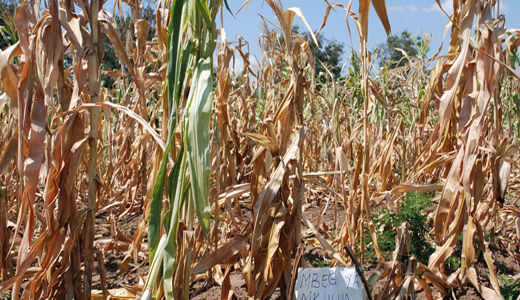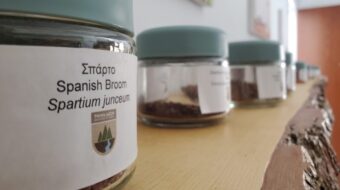
The grass is always greener on this side of global warming, it seems.
According to a the results of a study by researchers at Northern Arizona University , somewhat rosy predictions about purported beneficial effects of global warming on plant life are likely not true.
According to current scientific thought, though global warming is an overall negative in the world’s environmental status, it can have a positive effect on the growth rate of some plants.
According to the United States Global Change Research Program, “Crop responses in a changing climate reflect the interplay among three factors: rising temperatures, changing water resources, and increasing carbon dioxide concentrations. Warming generally causes plants that are below their optimum temperature to grow faster, with obvious benefits.”
The U.S. research agency does go on to warn that climate change is still a problem, and that these changes affect only some plants. However, even these limited benefits are challenged by the Arizona research. According to the researchers, there was a boost in plant growth – but only at first.
According to Zhuoting Wu, a doctoral graduate who was part of the research team, “We were really surprised by the pattern, where the initial boost in growth just went away As the ecosystems adjust, the responses changed.”
The problem with current models is that they are based only on short-term, greenhouse studies, say the NAU scientists. Their study took place in more natural conditions over a period of ten years.
The team moved four ecosystems from higher to lower elevations over the course of the study to simulate warmer environments expected from global climate change. In addition, they controlled for the variance in rainfall that would be expected due to the warming. They found that the effect of the change was beneficial for the first year, and that over the remaining nine years, the benefit grew smaller, eventually reaching zero.
In addition, the warming meant the loss of native species, and invasion by warmer-weather species, leading less productive plant species to predominate in the ecosystem. While current models suggest that warming will increase nitrogen availability, and therefore bring about a sustained increase in plant production, the researchers found that the warmed ecosystems more quickly cycled through nitrogen, meaning that much of the nitrogen was lost to nitrogen gas.
Bruce Hungate, an NAU professor who was the study’s senior author, said, “Faster nitrogen turnover stimulated nitrogen losses, likely reducing the effect of warming on plant growth. More generally, changes in species, changes in element cycles – these really make a difference. It’s classic systems ecology: the initial responses elicit knock-on effects which here came back to bite the plants. These ecosystem feedbacks are critical. You just can’t figure this out with plants grown in a greenhouse.”
Hungate continued that he thought “there are more surprises in store” as the study progresses over the next five years, funded by a grant from the National Science Foundation.
Photo: Local maize affected by drought, Tanzania. CC BY- NC-SA 2.0










